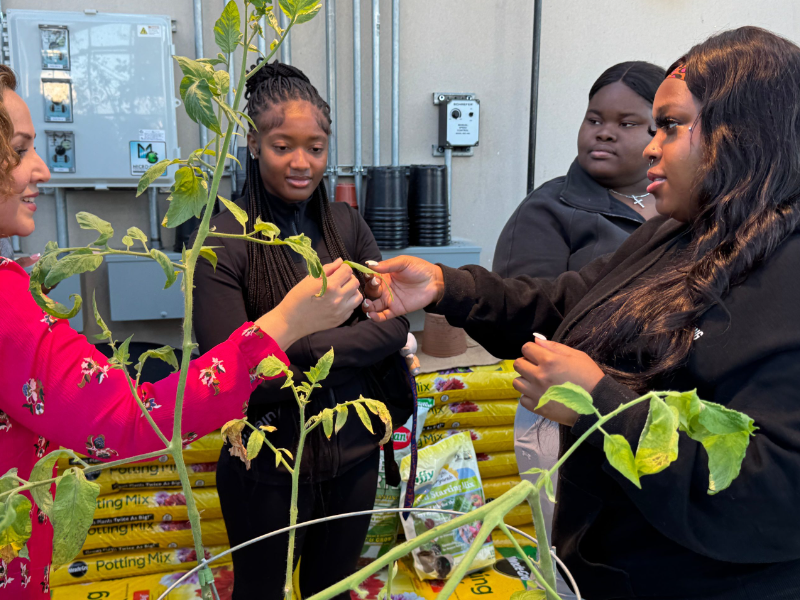Morgan State University Greenhouse Grows Health and Sustainability
Morgan State University’s Nutritional Science Department is sowing the seeds of change—literally. With the launch of its new greenhouse on the sixth floor of the Health and Human Services Center (HHSC), the university is bringing a long-envisioned idea to life: combining education, research, and community engagement through sustainable food cultivation.
A Vision Rooted in Community Health
The concept for the greenhouse dates back to 2010, when members of the Food and Nutrition Pre-Professional Club proposed a community garden to encourage healthier eating habits and reduce food insecurity in Baltimore. When plans for the new HHSC building began in 2021–2022, faculty members saw the opportunity to make that vision a reality.
“The greenhouse is serving as a catalyst to improve nutrition, promote wellness, and address hunger and obesity in the local Baltimore community,” faculty leaders explained. It aligns seamlessly with Morgan State University’s broader mission of promoting community health, environmental sustainability, and social responsibility.

A Living Laboratory for Learning
More than just a growing space, the greenhouse is a hands-on classroom. Nutritional Science students gain firsthand experience in agriculture, horticulture, and sustainability—learning how to plant, nurture, and harvest herbs and vegetables used in their culinary arts and nutrition labs.
The greenhouse’s core objectives include:
- Promoting improved nutrition and regenerative agriculture as models for both students and community members.
- Producing plants that directly enhance community health and food access.
- Developing a mini botanic garden, showcasing plant diversity and conservation.
- Growing medicinal and culinary herbs for classroom and community use.
By integrating the greenhouse into food service management, baking, and pastry classes, students learn not only plant science but also cost-effective and sustainable cooking practices. Crops such as basil, thyme, oregano, kale, squash, tomatoes, and bell peppers are cultivated for their nutritional benefits and frequent use in the teaching kitchen.
Strengthening Food Access and Nutrition Education
The impact of the greenhouse extends well beyond Morgan’s campus. Produce grown in the greenhouse is used in nutrition education classes, and participants from nearby neighborhoods are learning how to start their own gardens “one plant at a time.” Government agencies and local residents have even begun reaching out to the university’s garden specialists for guidance on establishing organic garden plots in their own communities.
Through these workshops and demonstrations, Morgan State is helping residents acquire practical skills that foster healthier eating habits and greater food self-sufficiency.
Collaboration and Cross-Disciplinary Innovation
The initiative also bridges academic disciplines and community partnerships. The Nutritional Science Department is collaborating with Morgan’s Family and Consumer Sciences (FACS) program to grow plants used for natural fabric dyes in fashion design courses. Beyond campus, the department has partnered with Miracle City Seventh-day Adventist Church in West Baltimore, where students and garden specialists recently demonstrated how to start organic plants and distributed seedlings to community members.
Growing Toward a Sustainable Future
The greenhouse embodies Morgan State University’s long-standing commitment to advancing equity through education and innovation. By merging science, culture, and community engagement, it provides a living example of how sustainability can take root in urban spaces.
Faculty and students alike envision a future where the greenhouse inspires a broader cultural shift—one where Baltimore residents reconnect with the land, reimagine their relationship with food, and cultivate healthier, more self-sufficient communities.
As one program leader summarized, “We’re preparing highly qualified Morgan State University students from diverse backgrounds with the knowledge and skills for leadership in dietetics, health, and sustainability—and growing a healthier Baltimore in the process.”





